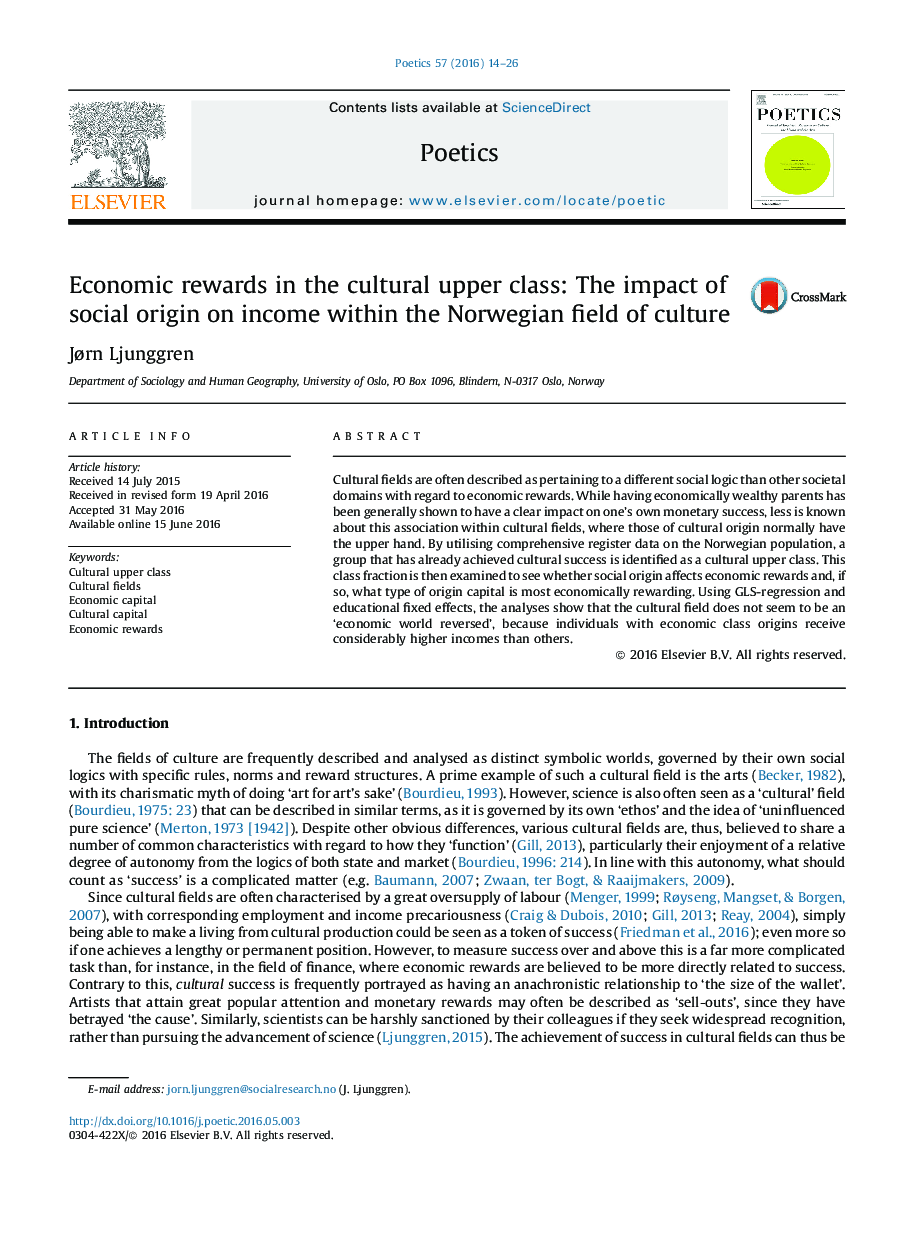| Article ID | Journal | Published Year | Pages | File Type |
|---|---|---|---|---|
| 1128238 | Poetics | 2016 | 13 Pages |
•Drawing on comprehensive population data, a cultural upper class consisting of occupational cultural successes is identified.•Descriptions of the cultural field as an economic world reversed is taken as point of departure.•Class reproduction seems to follow a resource-specific logic, also within the cultural upper class.•Those with economic class origins receive higher incomes than others.
Cultural fields are often described as pertaining to a different social logic than other societal domains with regard to economic rewards. While having economically wealthy parents has been generally shown to have a clear impact on one’s own monetary success, less is known about this association within cultural fields, where those of cultural origin normally have the upper hand. By utilising comprehensive register data on the Norwegian population, a group that has already achieved cultural success is identified as a cultural upper class. This class fraction is then examined to see whether social origin affects economic rewards and, if so, what type of origin capital is most economically rewarding. Using GLS-regression and educational fixed effects, the analyses show that the cultural field does not seem to be an ‘economic world reversed’, because individuals with economic class origins receive considerably higher incomes than others.
